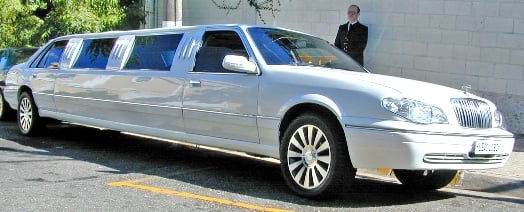Alan Fishman used to drive Wall Street bankers around New York. All the while, he thought he could do what they did. Now, the hedge fund president is facing five years in jail for securities fraud.
A former limousine driver who engineered an extraordinary career change and became president of a hedge fund now faces up to five years in prison for cheating investors out of nearly $20 million.
Alan Fishman, a 50-year-old Ukraine native who resides in Brooklyn's Brighton Beach, last week pleaded guilty to conspiracy to commit securities fraud and is scheduled to be sentenced on June 18, according to a spokeswoman for the U.S. Attorney's office in Manhattan. He also agreed to pay a $160,000 penalty.
One of the most unusual Wall Street fraudsters to emerge in recent years, Mr. Fishman was subject of a article last year.
According to his attorney, Don Savatta, Mr. Fishman came to the U.S. nearly 20 years ago and attended Temple University, where he majored in Russian literature and business administration. Around the turn of the millennium, his job was driving investment bankers and corporate lawyers to meetings or back to their posh houses in the suburbs. He decided to take a crack at his customers' game.
A gentleman named Gary Gelman, who is Mr. Fishman's nephew, was trying to launch a hedge fund. Although Mr. Fishman had no prior experience managing money, in 2003 he became president of the A.R. Capital Global Fund, which operated from a small office on 39 Broadway in lower Manhattan. Using cold calls, the fund lured in 70 clients who invested about $20 million.
The fund managers told investors they would buy shares in overseas real estate companies and trade currencies, oil, gas and other commodities while using “active, leveraged trading” and “fundamental and technical analysis” to make money. None of this was true, according to prosecutors. Instead, client money was invested in three Ukrainian stocks or parked in a Ukrainian money market fund. Millions more were wired to bank accounts in Lithuania, including one held by a company located in St. Kitts and Nevis.
When one client visited New York to check on his investment, fund officials refused to meet at their office because they said it was being renovated—and met instead held at a nearby deli.
Mr. Fishman had primary responsibility for investment decisions, according to the government. His lawyer, Mr. Savatta, says Mr. Fishman continued working at the limousine company and served mainly as an administrator at the hedge fund.
Two of Mr. Fishman's hedge fund colleagues, Daniel Ledven and Edward Veisman, also pleaded guilty last week. The fourth defendant, Mr. Gelman, is a fugitive and believed to be in Ukraine. All were scheduled to go to trial this coming Monday.
[This story first appeared in Crain's New York Business, a sister publication of InvestmentNews.]







